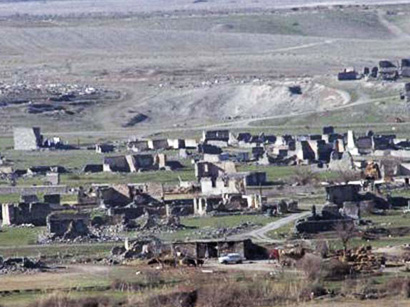
Instability in Nagorno-Karabakh would definitely have a flow of consequences, Australian writer and international political expert Justin Amler told Trend Dec.15.
The world is currently focused on the Syrian conflict, ISIS and the refugees, he said. Although the conflict in Nagorno-Karabakh just doesn’t seem to be as high on the world media’s agenda as others, it remains a critical one as it is positioned in a highly strategic area in terms of energy supply to Europe, Amler said.
The conflict between the two South Caucasus countries began in 1988 when Armenia made territorial claims against Azerbaijan. As a result of the ensuing war, in 1992 Armenian armed forces occupied 20 percent of Azerbaijan, including the Nagorno-Karabakh region and seven surrounding districts.
The two countries signed a ceasefire agreement in 1994. The co-chairs of the OSCE Minsk Group, Russia, France and the US are currently holding peace negotiations.
Armenia has not yet implemented the UN Security Council’s four resolutions on the liberation of the Nagorno-Karabakh and the surrounding regions.
Unless the dynamic changes, it is unlikely any resolution would be forthcoming now or in a few years time, and things will only continue to deteriorate, he said.
“As per international rulings, Nagorno-Karabakh is recognized as part of Azerbaijan, so the onus is very much on Armenia to fulfill their obligations and the efforts of the Minsk Group should be aimed to facilitate that,” he said. “That would be the best way to move the situation forward with substantive negotiations.”
He said that he doesn’t see anything concrete coming out of the forthcoming meeting of the presidents of Azerbaijan and Armenia. “Both parties are very entrenched in their positions, and tensions remain high at the moment and with almost one hundred reported ceasefire violations by Armenia in the last few days, the tensions seem only to be increasing,” Amler said.
“I can’t see progress happening unless there is an acknowledgment on the Armenian side that in terms of international court rulings by the United Nations and the EU itself, the Nagorno-Karabakh is considered an occupied area,” he said. “Having said all that, the fact that they are going to be meeting is a positive sign, but more than likely I’d expect a statement to the effect of something like they’ll continue to work towards resolving the issue without any actual steps being documented.”
—
Follow the author on Twitter: @Anahanum
Trend
